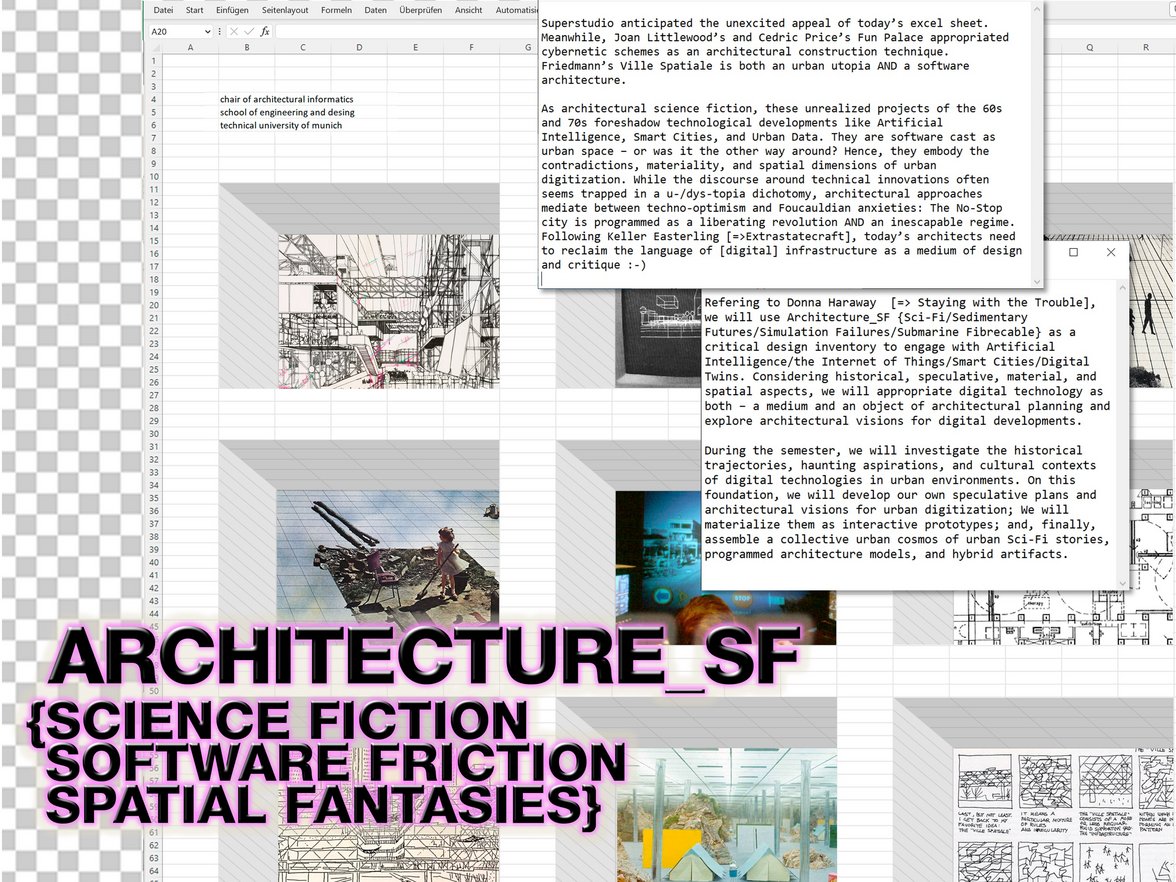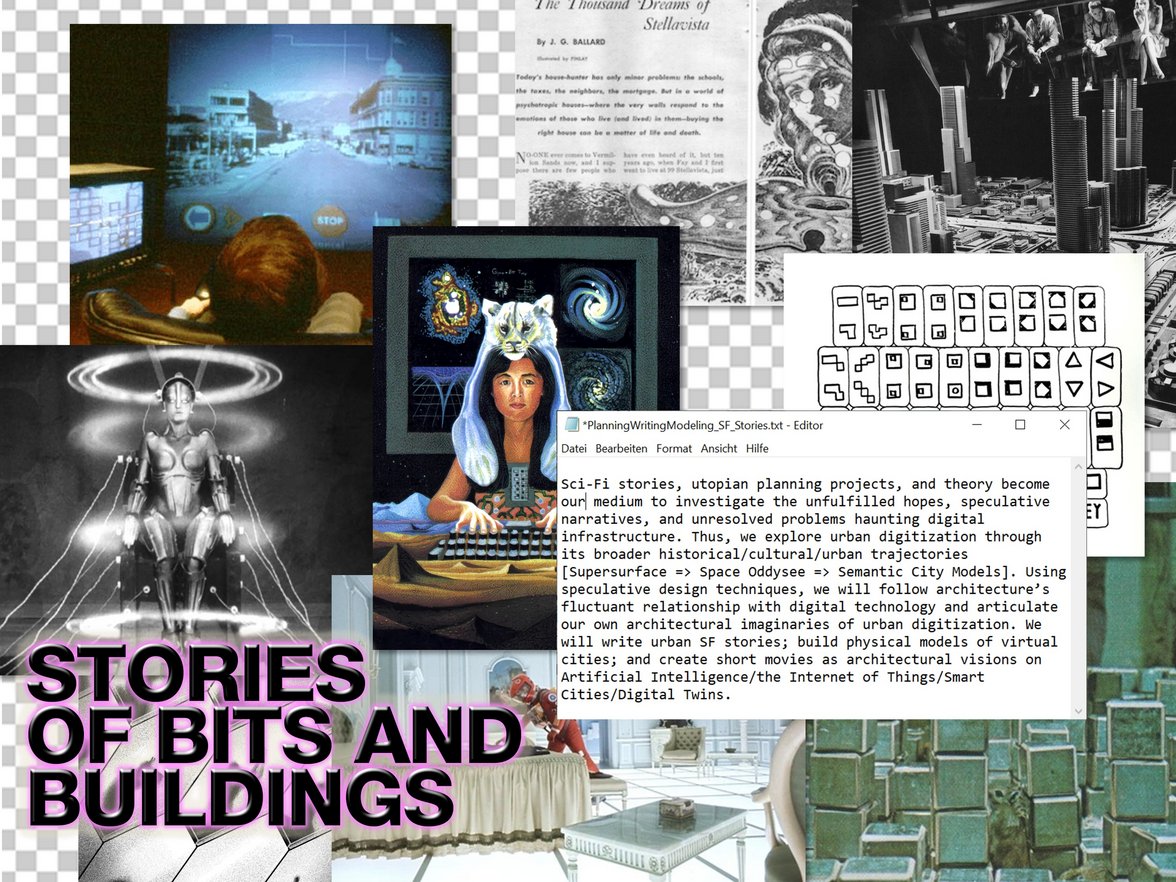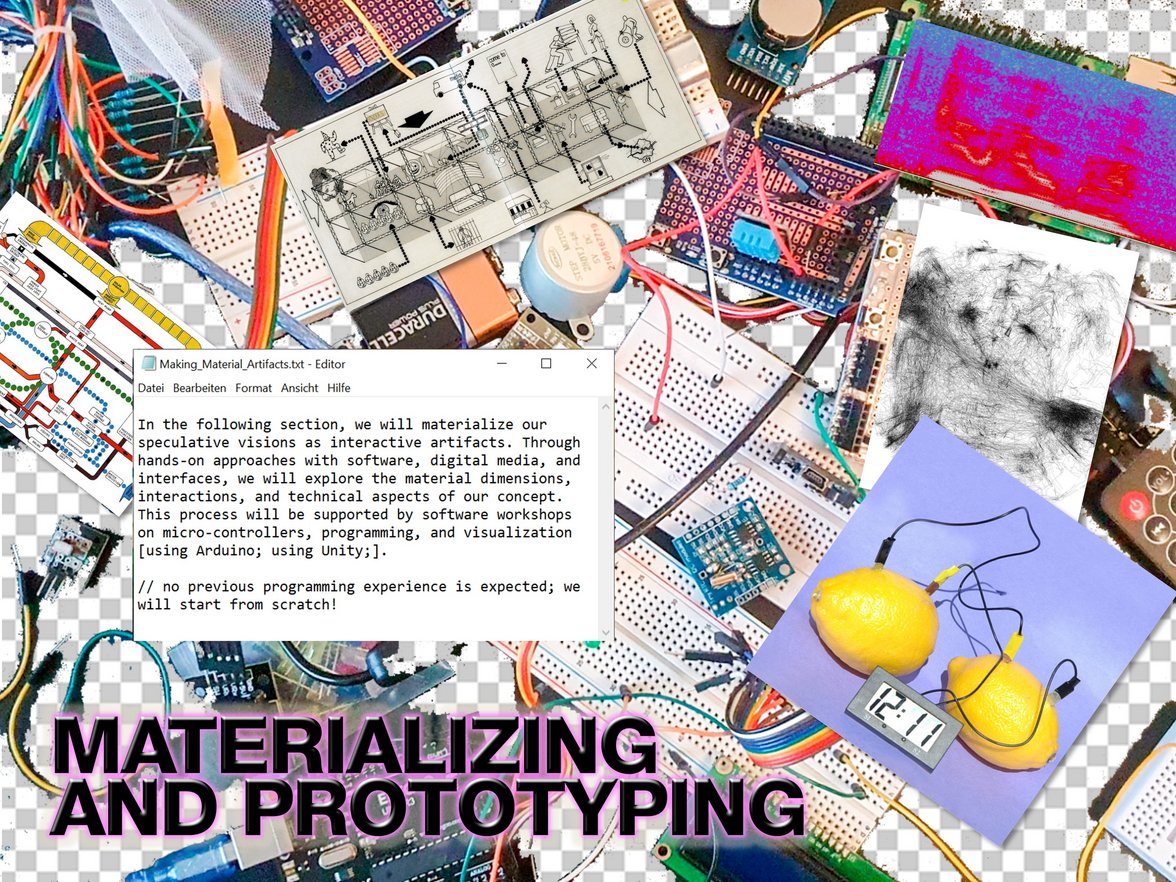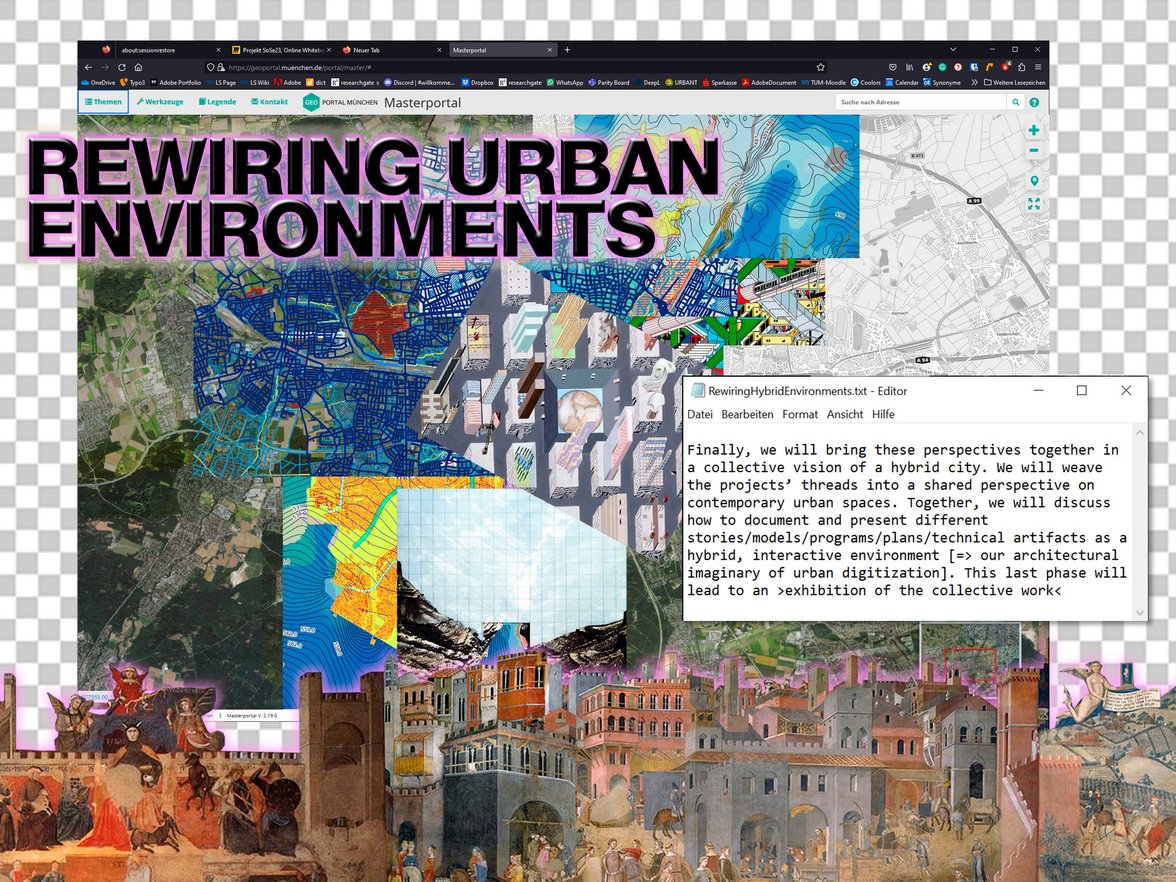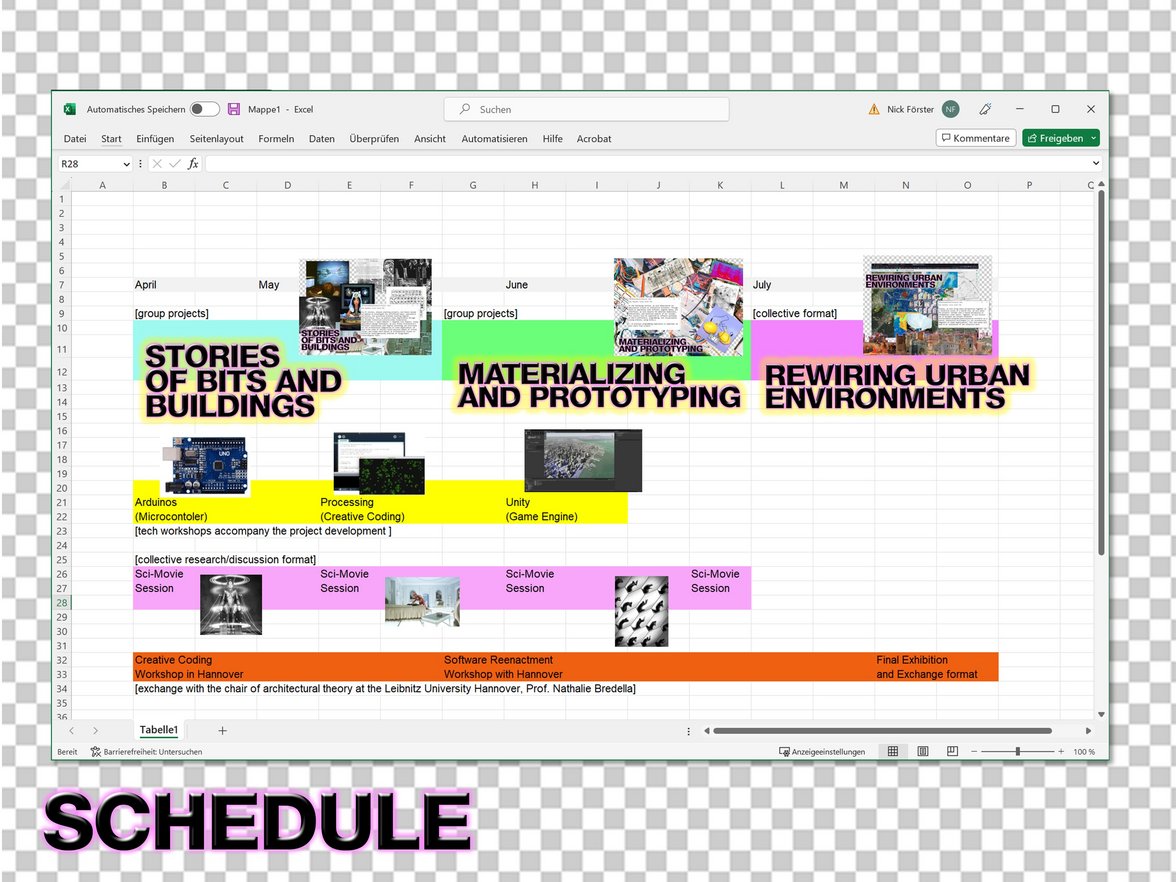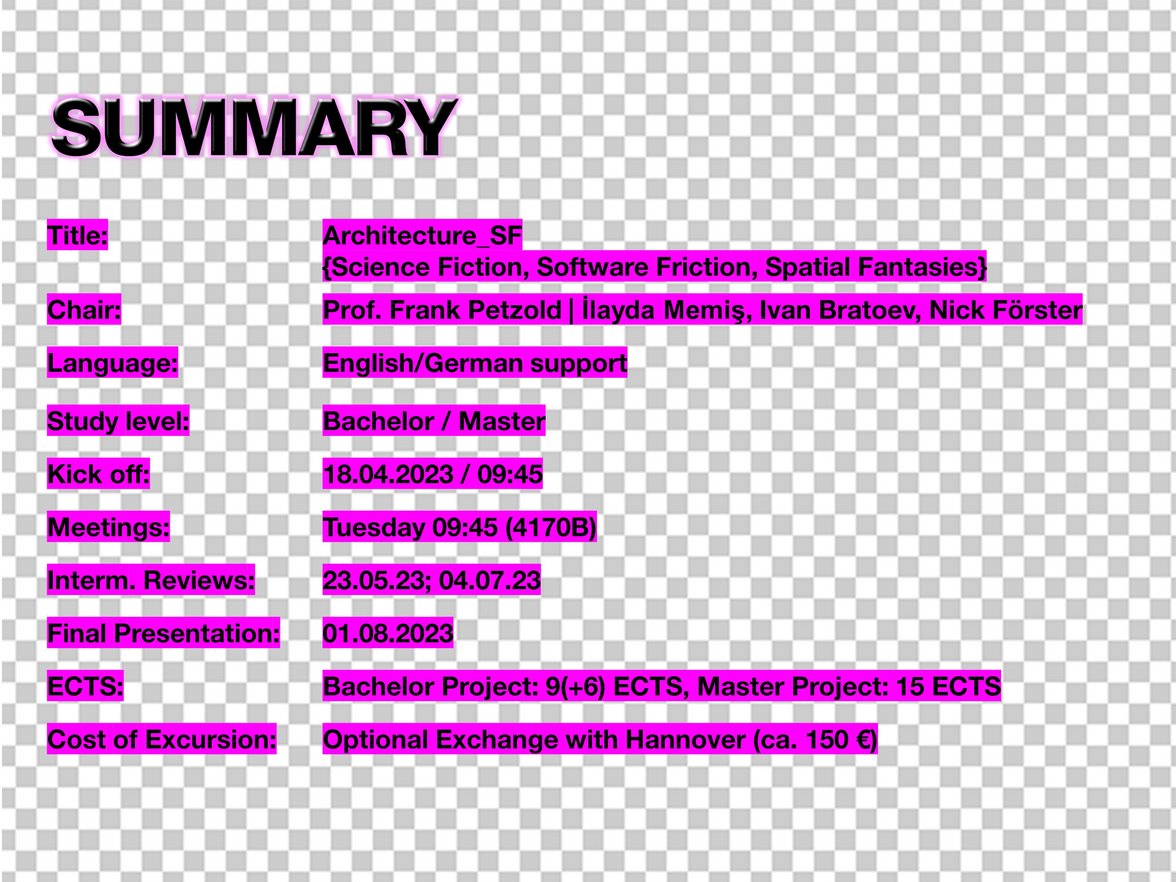(copy 1)
Architecture_SF {Science Fiction, Software Friction, Spatial Fantasies}
Projekt im Sommersemester 2023
Tutors: Prof. Dr.-Ing. Frank Petzold, Ivan Bratoev M.Sc., Nick Förster M.A., İlayda Memiş M.A.
Superstudio anticipated the unexcited appeal of today’s excel sheet. Meanwhile, Joan Littlewood’s and Cedric Price’s Fun Palace appropriated cybernetic schemes as an architectural construction technique. Friedmann’s Ville Spatiale is both an urban utopia AND a software architecture.
As architectural science fiction, these unrealized projects of the 60s and 70s foreshadow technological developments like Artificial Intelligence, Smart Cities, and Urban Data. They are software cast as urban space – or was it the other way around? Hence, they embody the contradictions, materiality, and spatial dimensions of urban digitization. While the discourse around technical innovations often seems trapped in a u-/dys-topia dichotomy, architectural approaches mediate between techno-optimism and Foucauldian anxieties: The No-Stop city is programmed as a liberating revolution AND an inescapable regime. Following Keller Easterling [=>Extrastatecraft], today’s architects need to reclaim the language of [digital] infrastructure as a medium of design and critique :-)
Refering to Donna Haraway [=> Staying with the Trouble], we will use Architecture_SF {Sci-Fi/Sedimentary Futures/Simulation Failures/Submarine Fibrecable} as a critical design inventory to engage with Artificial Intelligence/the Internet of Things/Smart Cities/Digital Twins. Considering historical, speculative, material, and spatial aspects, we will appropriate digital technology as both – a medium and an object of architectural planning and explore architectural visions for digital developments.
During the semester, we will investigate the historical trajectories, haunting aspirations, and cultural contexts of digital technologies in urban environments. On this foundation, we will develop our own speculative plans and architectural visions for urban digitization; We will materialize them as interactive prototypes; and, finally, assemble a collective urban cosmos of urban Sci-Fi stories, programmed architecture models, and hybrid artifacts.
Stories of Bits and Buildings
Sci-Fi stories, utopian planning projects, and theory become our medium to investigate the unfulfilled hopes, speculative narratives, and unresolved problems haunting digital infrastructure. Thus, we explore urban digitization through its broader historical/cultural/urban trajectories [Supersurface => Space Oddysee => Semantic City Models]. Using speculative design techniques, we will follow architecture’s fluctuant relationship with digital technology and articulate our own architectural imaginaries of urban digitization. We will write urban SF stories; build physical models of virtual cities; and create short movies as architectural visions on Artificial Intelligence/the Internet of Things/Smart Cities/Digital Twins.
Materializing and Prototyping
In the following section, we will materialize our speculative visions as interactive artifacts. Through hands-on approaches with software, digital media, and interfaces, we will explore the material dimensions, interactions, and technical aspects of our concept. This process will be supported by software workshops on micro-controllers, programming, and visualization [using Arduino; using Unity;].
// no previous programming experience is expected; we will start from scratch!
Rewiring Urban Environments
Finally, we will bring these perspectives together in a collective vision of a hybrid city. We will weave the projects’ threads into a shared perspective on contemporary urban spaces. Together, we will discuss how to document and present different stories/models/programs/plans/technical artifacts as a hybrid, interactive environment [=> our architectural imaginary of urban digitization]. This last phase will lead to an >exhibition of the collective work<
